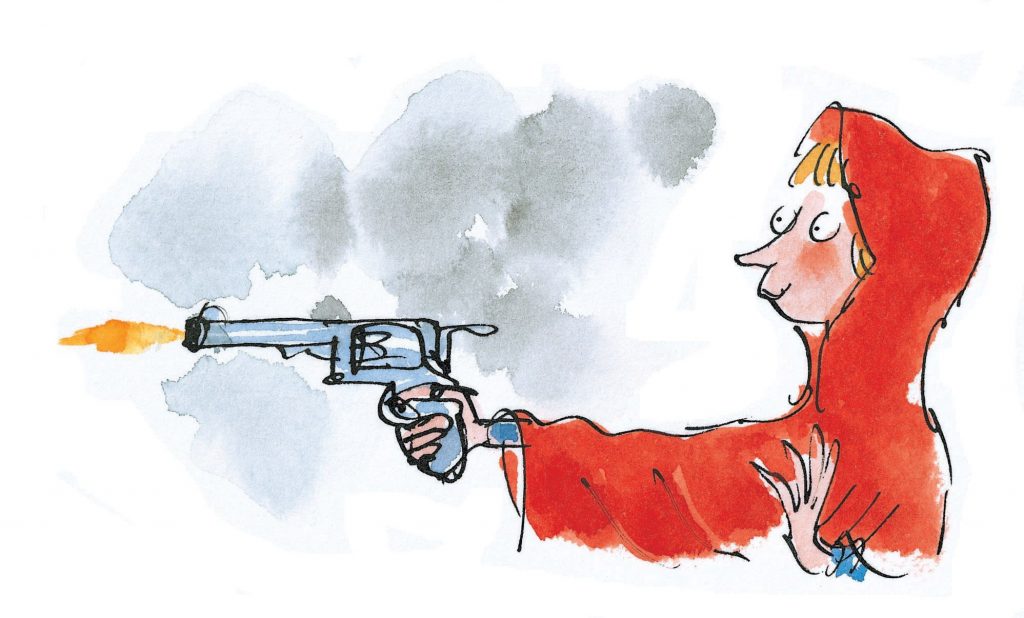Roald Dahl’s Little Red Riding Hood and the Wolf is, certainly, by no means unique. Without the already existent idea of Little Red Riding Hood, the tropes that Dahl leans upon for humour—Little Red Riding Hood’s familiar listing of what big this that or the other thing for instance—wouldn’t have nearly as much humour. The subversion of the expected lends the work its punch, with the remaking of Little Red Riding Hood into Miss Riding Hood. At the same time, beyond the expected tropes and borrowed plotline, Dahl’s authorship, sense of rhythm and rhyme, are something that many authors would struggle with and give the story a unique feel—the flickering eye, drawn pistol, and lovely furry wolfskin coat.

And bang bang bang, she shoots him dead.
Clearly it’s a work, distinct in its own way and possessing artistic merit in its own right, but at the same time such a work is heavily reliant on the pre-existing narrative of Little Red Riding Hood. In a sense, Roald Dahl’s version of Little Red Riding Hood is essentially just fan fiction of the ‘original’—in so far as anybody knows the original—tale of Little Red Riding Hood.
Then, when considering authorship, and what works can and should be critically and academically studied, how far off is fan fiction, in the modern context, from that? Fairy tales were once considered not worthy of applied academic rigour—now it’s a sizable field in its own right. Fan studies is currently more the study of the culture of ‘fandom,’ but I’d hope one day it incorporates literary examinations of works of fan fiction as literary works in their own right, similar to what happened with fairy tales.
All in all though, the idea of authorship, of borrowed plotlines and reused tropes is one that’s interesting to me.

